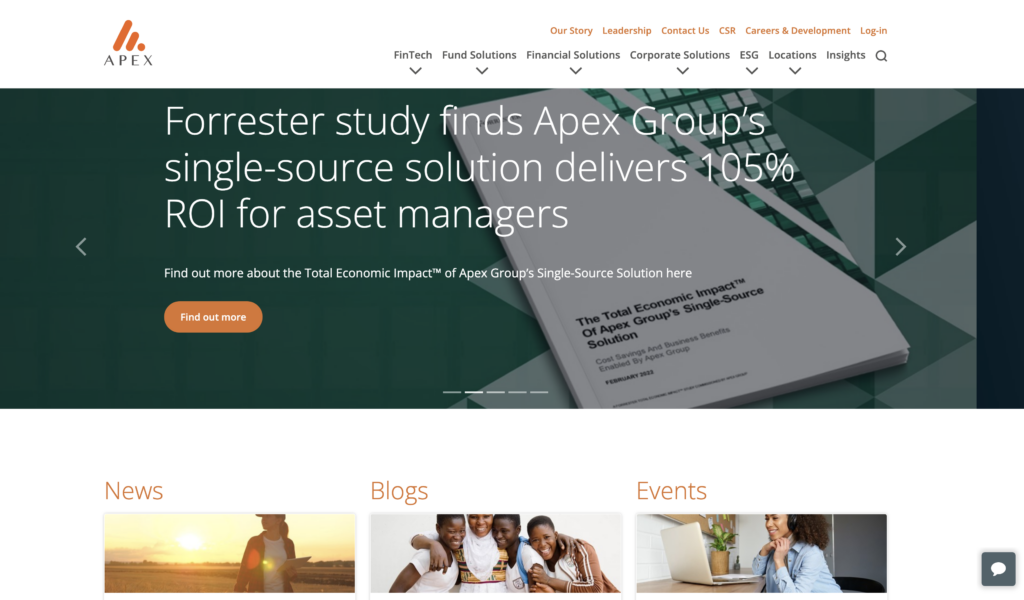The HR World speaks to industry leaders about their careers and life – what advice would they pass on and what wisdom brought them to where they are now.
As they say, the only constant in life is change – and that is certainly something which has characterised my career of nearly two decades working across both public and private HR teams.

27 February 2023

Story by
Elaine Hunt, Global Head of Talent Development and Culture at global financial services provider Apex Group
As they say, the only constant in life is change – and that is certainly something which has characterised my career of nearly two decades working across both public and private HR teams.
Buzzwords and trends seem to come and go – anyone remember when ‘rigor’ was the learning obsession of the day?! – but here’s a few things I have learnt to be consistently true when it comes to achieving engagement and productivity, as well as managing agile, happy and high performing teams.
Introducing agility
An agile mindset is not a one size fits all panacea to all that ails your business. Before introducing agile working and learning styles, it is essential to first take a step back to identify who, what, where and when we need people to adopt agile skills sets.
Adopting a growth mindset has been crucial to the success of Apex Group’s unique ‘hyper growth’ trajectory over the last three years – scaling up from a 2,000-person organisation to 12,000, both organically and through some significant acquisitions…all during a global pandemic!
Focus on the positives
Many of us – especially in high performance environments – are guilty of focusing too much time and attention on seeking out faults and areas for improvement. There is undoubtably huge value in flagging, investigating and resolving mistakes or errors and ensuring that the institution learns from them to succeed in future. But we should also try to anticipate and prepare for future challenges, by running scenarios or ‘drills’ so when it’s happening in real life there’s been some practice on how to respond.
Of course, these defensive measures have a role in driving continuous positive change and evolution, but in addition, ensure you take the commensurate time to focus on the strengths and celebrate successes. Observing areas of strength means that we are able, for example, to identify which team members are generalists, while others are more specialists. Then you can help grow their skill sets with an end goal of enhancing depth and breadth across the organisation or team as whole.
Agile mindsets still need boundaries
The word agile brings to mind a vivid picture of physical nimbleness and flexibility – but as I’ve learnt in yoga classes, if you over flex your muscles, you can break! Over demanding mental agility from a team can be just as exhausting as physical agility – hopping between back-to-back calls and switching from one topic to another is like going to the gym and trying to use all the equipment in an 8 hour HIIT session… we wouldn’t do that to our bodies so why do it to our minds?
Setting boundaries and organizing the working day is crucial, and I’ve learnt, that if you don’t respect your own boundaries, no one else will either. But as I’ve mentioned, there is no one size fits all to embedding agility in a team. The transition to working from home en-mass – and now the return to hybrid work patterns – has seen people forced to adapt to sudden changes and most reported working more intensely no matter the industry. As a manager, it is important to know how the people you work with thrive and do their best work – some love the short sharp pressure of a tight deadline, some love collaboration, some need solitude and quiet to achieve their potential.
"When engulfed in the bigger picture of agile working you can sometimes forget that it’s the little things that pack a punch and have an outsized impact on the success and wellbeing of others in your team."

It’s the small things which matter most
When engulfed in the bigger picture of agile working you can sometimes forget that it’s the little things that pack a punch and have an outsized impact on the success and wellbeing of others in your team.
We’re encouraging a mindfulness of others and respectful of their workloads and boundaries. While I certainly don’t agree with Elon Musk’s management style on most fronts – something as simple as respecting your colleagues time and making sure you’re inviting the right people to a meeting, and not imposing on their time unnecessarily makes a big difference. All meetings should have a clear purpose set out ahead of the call or meeting so that others can prioritise accordingly. Apex Group’s flat structure with no personal assistants means that we all use the diary tools to check availability.
The power of thanking people and showing a genuine interest in their wellbeing cannot be underestimated. We launched our Thrive platform last year to enable peer to peer shoutouts so everyone and anyone could be noticed, no approval or hierarchy required to validate – it’s really about what makes a difference on an individual level. Thrive also enables us to fairly allocate points for milestone achievements and loyalty, I’m really proud that people can choose the reward that suits them. If ever I need a pick-me-up, I go and read the recognition wall for 10 minutes!
Make time for conversations
Finally, as an HR leader working in an agile environment, we must make time for conversations – getting the basics right, offering clarity, time to collaborate and solve problems – checking in on objectives, celebrating success regularly is essential to a happy and product team. It can be easy to forget these foundations while dealing with the complexity and pace of change.
In order to achieve your desired outcomes, it is essential to have a team working agreement in place so everyone is included and everyone is accountable. Our trigger behaviour to defend our role and territory are fundamental – primal even – and in order for conversations to be productive, people need to know their role, have control over defining how they work in that role and what is most important to success.






